June 10th was supposed to be a day of solemn unity, a moment of national reflection, and a time to commemorate a man who was revered across political lines—a leader of hope, boldness, intellect, and patriotism.
But instead of reverence, what Malawians witnessed was a tragic and embarrassing fragmentation of national unity. The memorial of the late Vice President Dr. Saulos Klaus Chilima has shockingly been turned into a stage for political theatre, with the UTM and Democratic Progressive Party (DPP) playing lead roles in a disjointed and disgraceful political comedy of errors and shame.
In a twist stranger than fiction, the opposition hijacked the Ntcheu memorial, splintering the national homage to Chilima into two competing ceremonies: one organized by the late vice President’s family and another led by the UTM and DPP alliance. This was despite the state also organising a national commemoration at the crash site in Mzimba.
What was supposed to be a dignified day of mourning turned into a partisan sideshow. For the family they had all the rights to organise a private ceremony at the vice President’s home, which unfortunately the two greedy political parties tried hard to hijack before being told to get their hands off.
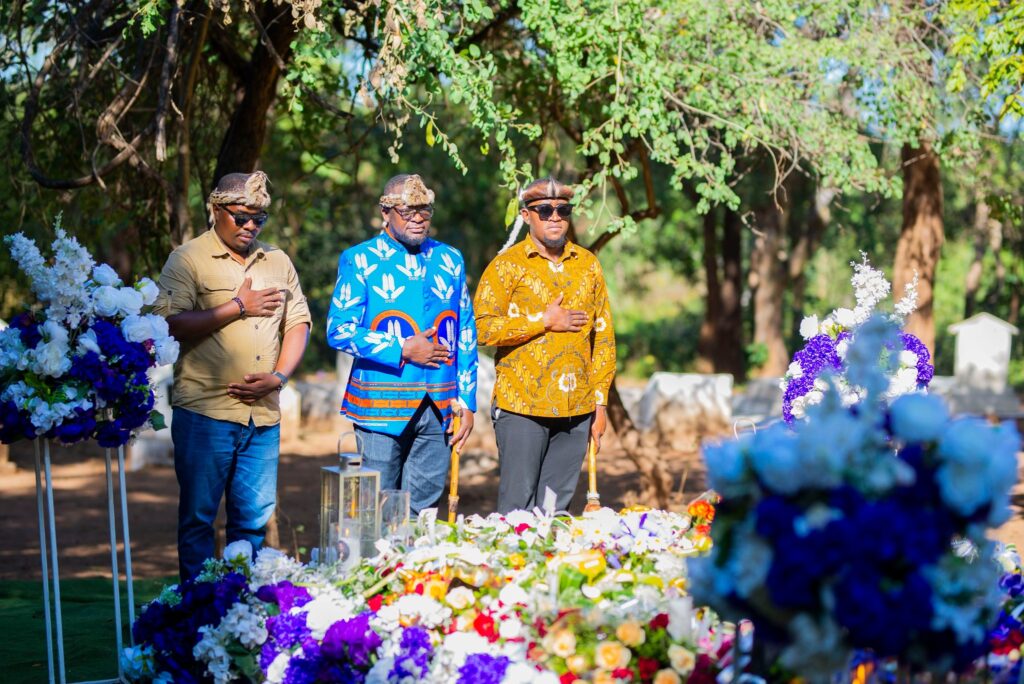
To understand the gravity of what transpired, one must first understand the man we were supposed to be remembering. Dr. Chilima was a symbol of generational transformation, a man who walked from the private sector into public service with integrity and charisma.
He had his own shortfalls just like everybody else, but Chilima represented the aspirations of many young Malawians and often spoke about moving the country away from tired, recycled leadership. And yet, in death, his memory has been weaponized by the very system he sought to reform.
The UTM-DPP event in Ntcheu, supposedly organized to support Chilima’s family, quickly revealed its true colours: political red and blue. Political top officials and operatives arrived decked in party regalia.
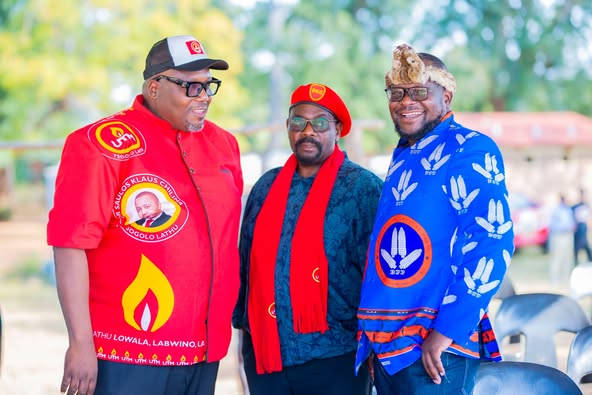
There was no attempt at subtlety, the occasion was converted into a poorly veiled political rally. What was more insulting to Chilima’s legacy is that the UTM, the party he founded on ideals of unity and transformation, organized the event independent of government officials. This exclusionary tactic robbed the event of its national character.
Further insult to the spirit of the event, in Ntcheu political speeches from politicians dominated as UTM and DPP shamelessly used the occasion to score cheap political points. Gone was the humility. Gone was the unity. Instead, Malawians were served divisive rhetoric, and a complete disregard for the wishes of a grieving family and a wounded nation.
To add irony to injury, former president Arthur Peter Mutharika, who is currently hospitalized in South Africa, reportedly called Bright Msaka to represent the DPP at the UTM-led event. A visibly frail DPP, without a coherent succession plan, sought relevance by clinging onto UTM’s moment.
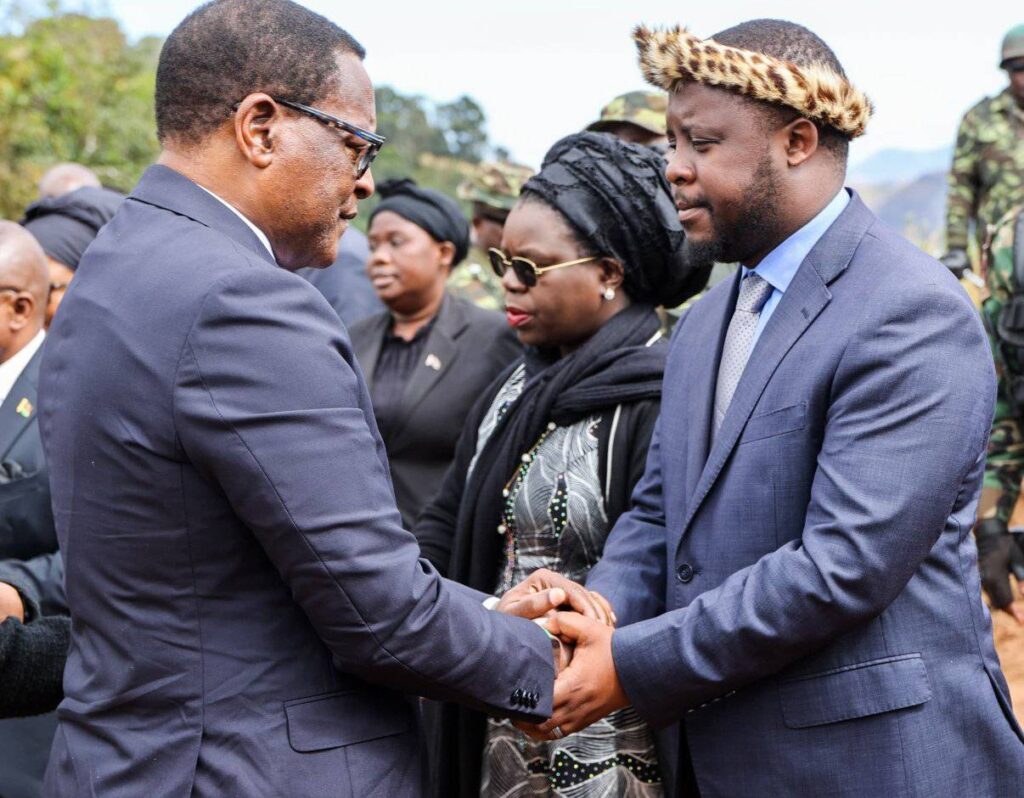
Yet in a moment of poetic justice, the true spirit of reverence found its place in Mzimba, where President Lazarus McCarthy Chakwera led a dignified, inclusive, and apolitical state event. This one was devoid of party colours. It was respectful to all nine victims.
The presence of Vice President Michael Usi, bereaved families, military honour guards, and even the absence of grandstanding speeches reminded Malawians what a memorial should look like. There, President Chakwera announced plans for a memorial tower and the naming of the new Lilongwe six-lane highway in Chilima’s honour. These were solemn, fitting tributes.
What the UTM and DPP failed to grasp is that the spirit of Dr. Chilima cannot be co-opted for political expedience. His death, as tragic as it was, should have been a unifying symbol. His legacy is not red or blue; it is Malawian. Instead, the UTM turned it into a partisan gathering, with DPP gleefully playing second fiddle.
Dr. Patricia Kaliati, in her remarks, waxed poetic about honouring Chilima’s ideals. Yet, her party’s actions betrayed those very ideals. The exclusion of MCP officials, the desecration of mourning through party attire, and the overall tone-deafness of the event were not the work of a party committed to unity. It was political theatre, pure and simple.
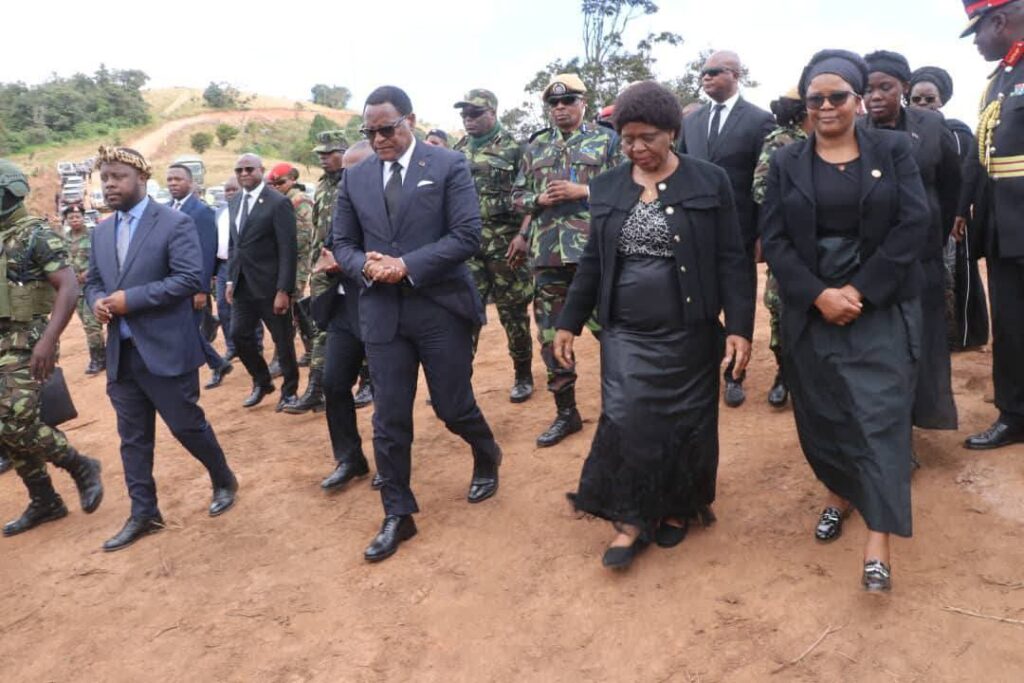
Even Inkosi ya Makosi Gomani V, a traditional leader and close cultural figure to the Chilima family, distanced himself by attending the government-led memorial. His absence in Ntcheu spoke volumes, a quiet rejection of the political circus that unfolded there.
The public mood is one of outrage and confusion. Social media has been awash with condemnation, with many wondering how a man who united so many in life could divide the country so deeply in death. Many Malawians believe this was a missed opportunity for unity, healing, and reaffirming national values.
There are traditional protocols when it comes to mourning, especially among the Ngoni. You do not remember the dead without family consensus. Doing so is considered “kusambula mizimu”, a provocation of the dead spirits. The spirit of Dr. Chilima, by these standards, was clearly not present at the Ntcheu event which as evening broke was no longer a commemoration but a beer drinking and dancing party for the youths.
Instead, the spirit of Chilima found peace in Mzimba, where respect and dignity was given not only to him but to all who perished with him.
The memorial debacle also shines a harsh light on Malawi’s toxic political culture. We are once again reminded that our politics has not matured. Even in death, our leaders cannot resist the temptation of using tragedy for selfish gain. This culture of opportunism undermines every effort at national unity.
The President, in stark contrast, handled the matter with admirable grace. His visits with the bereaved families, the commitment to implement accident report recommendations, and the proposed construction of a Memorial Tower, show a government willing to learn and act.
While the opposition turned the occasion into a political comedy, the presidency honoured Chilima’s memory with action and dignity.
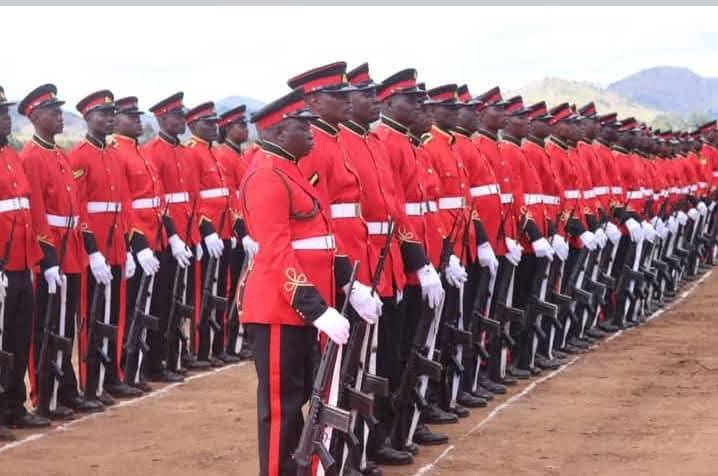
A Final Irony
In life, Chilima fought for a better Malawi—one free from division and generational stagnation. In death, his dream was ironically undermined by those closest to him politically. The very forces he tried to navigate and reform have exploited his passing.
What happened in Ntcheu is not just political immaturity; it is moral failure. To turn a national memorial into a platform for campaign speeches and partisan mobilization is to insult the intelligence and emotions of the Malawian people.
Let this day be a lesson. As the nation reflects on this chaotic commemoration, we must ask ourselves what kind of politics we want. Chilima stood for transformation. If we truly want to honour him, we must begin to hold our leaders accountable, not just in elections, but in moments of national importance like this.
Malawi deserved one memorial, one voice, and one nation. Instead, it got two events: one dignified and national, the other embarrassing and divisive.
The spirit of Saulos Klaus Chilima is surely watching. Let us hope it finds peace not in our chaos and selfishness, but in our commitment to eventually do better.








